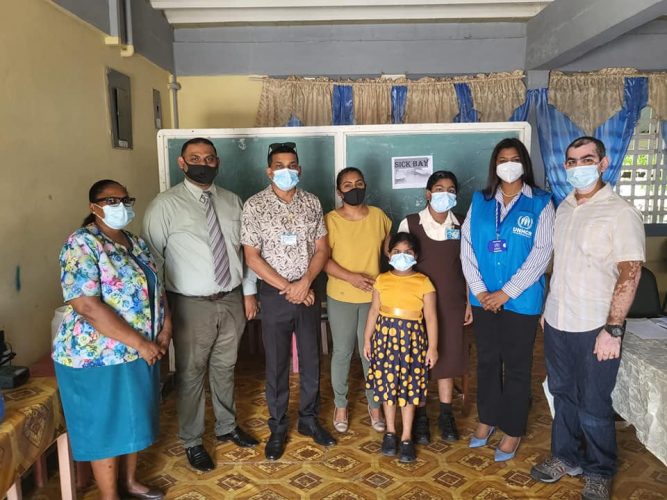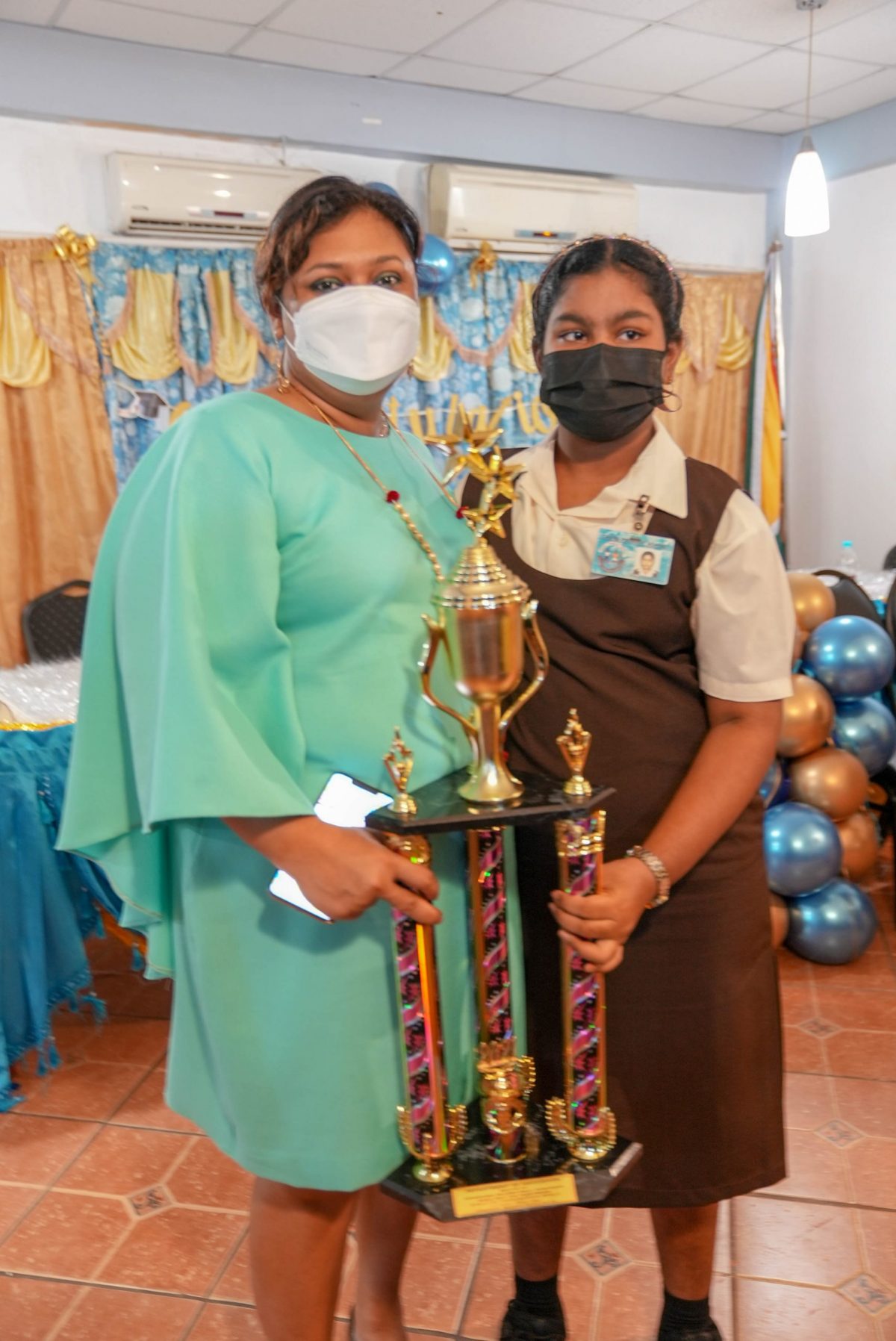A Venezuelan student who attended Crane Primary School is among the top ten National Grade Six Assessment (NGSA) performers for Region Three.
The Ministry of Education on Saturday said Emily Vaamonde-Beria copped 515 marks at this year’s NGSA, emerging as the top student at the Crane Primary School, West Coast of Demerara (WCD). She has been awarded a place at Queen’s College as a result.
According to a Ministry release, the 12-year-old, whose parents are Guyanese, is Venezuelan by birth and moved to Guyana in 2018 along with her parents and younger sibling. Her only exposure to the English language before her migration was through her parents. However she quickly adjusted and even became a translator for other students like herself. “It was a bit hard with the language barrier and to understand some of the subjects,” she said. She also said that she expected to do well but she was surprised at her placing among the top performers.
“I feel very happy that I could’ve done so well. It was my expectation, but I did not expect to do so well,” Emily said after learning of her results in October.

Her father, Brayan Vaamande, said, “We are very proud and happy. We know we would have done good because we always give her the support and encourage her to work very hard in her education.” Vashti Paul, head teacher of Crane Primary School, on the West Coast of Demerara, said that Emily became the student that teachers would ask to communicate with other Venezuelan students. She added that the student was always happy to assist.
“She excels at everything she embarks upon, intentionally or unintentionally. She is self-confident and self-motivated. She is a well-rounded pupil, involved in academic as well as co-curricular activities. Throughout her years at the Crane Primary School, she has always been the pupil that achieves the highest percentage in her class,” the teacher was quoted as saying.
The student, who shares the sixth place spot in Region Three with Yushini Kumar of Genesis Early Childhood, said that she wants to become a lawyer to assist other migrants with relocating to the country. She has obtained her citizenship and said “I would like to be a lawyer to help people like me, fight for their freedom and justice; some are awaiting their citizenship while some are waiting to get into schools.”
The Ministry of Education in June 2021 established its Risk Management and Migrant Support Section (RM&MSS) to help students who migrate to Guyana. The Unit is responsible for placing, monitoring, and supporting children in crisis-stricken communities, along with the integration of migrant children into the Guyanese society. The Unit collaborates with the United Nations Children’s Fund (UNICEF), United Nations Educational, Scientific and Cultural Organization (UNESCO), United Nations High Commissioner for Refugees (UNHCR), the Inter-American Development Bank (IDB), and the Ministries of Human Services and Social Security, Health, and other stakeholders.
The RM&MSS aims to ensure equitable access to education and ensure that children affected by crises can access a safe and productive learning environment, the release said. Additionally, the Coordinator of the RM&MSS, Rampattie Prashad-Bisnauth has said that the Department of Education, Region Three assisted several students with the translation of documents through the Catholic Church, while visits were made to Regions 1, 3, 4 and 7 to assess the problems migrant children are encountering in regards to access to education.
Prashad-Bisnauth said that the RM&MSS is gathering data to create an active database to determine where the children are residing and how assistance can be provided. “Data guides policy implementation and projects, hence, it’s important that we know where these children are and how the Ministry of Education can help with integrating them in schools and providing support,” she added.
The release added that the RM&MSS collaborates with all Departments of Education across the eleven education districts. It provides data on migrants (not limited to Venezuelans) admitted in each school across the regions. Using the information provided, the Unit visits schools and communities to assess the needs of the migrants and provide support services as is required.
The unit can be contacted on 604-1316.






